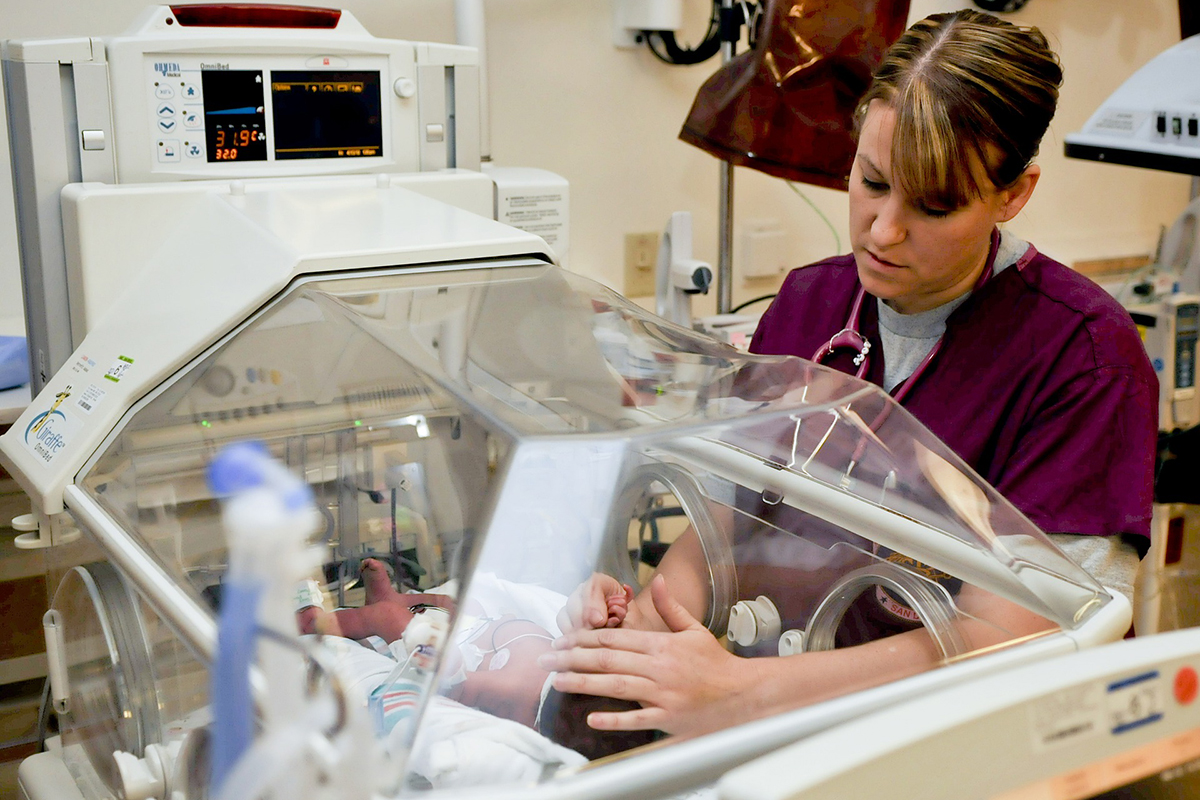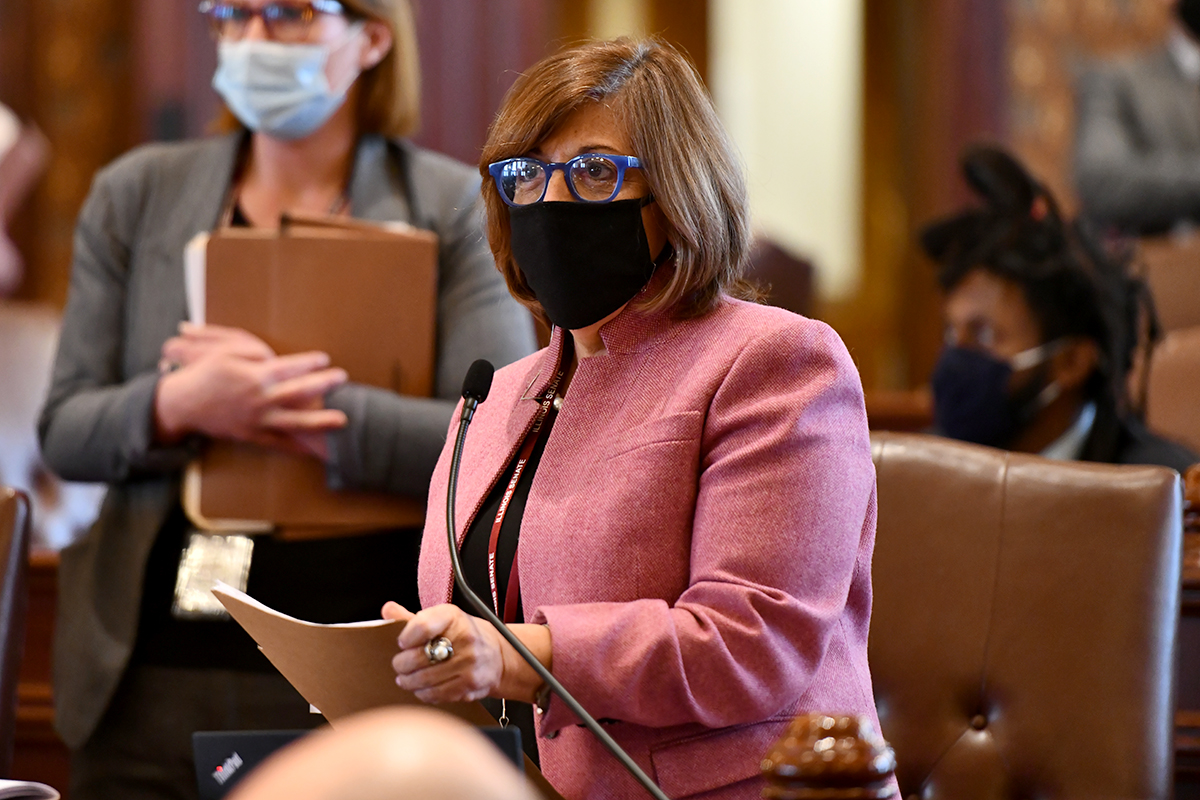- Details
- Category: Senator Sara Feigenholtz News

Measure paves the way to more efficient patient care
SPRINGFIELD – A bill sponsored by State Senator Sara Feigenholtz (D-Chicago) that allows Advanced Practice Registered Nurses to attest to their completed clinical hours was signed into law Friday.
“Our allied health care workers are stretched to the limit—especially during the COVID-19 pandemic,” Feigenholtz said. “This new law will assist Advanced Practice Registered Nurses who have completed their clinical training hours to self-attest and eliminate delays that some APRNs have been experiencing.”
Senator Feigenholtz was the chief sponsor of the original Full Practice Authority law, passed in 2017, and took the lead on this important follow-up legislation.
Read more: Feigenholtz cuts red tape for Advanced Practice Nurses
- Details
- Category: Senator Sara Feigenholtz News
 CHICAGO – Illinois bars and restaurants will have more options and more time to utilize the state’s “cocktails-to-go” program under a new law sponsored by State Senator Sara Feigenholtz (D-Chicago).
CHICAGO – Illinois bars and restaurants will have more options and more time to utilize the state’s “cocktails-to-go” program under a new law sponsored by State Senator Sara Feigenholtz (D-Chicago).
“Many business owners in the hospitality industry were worried about recovering from COVID-19-related losses to their business,” Feigenholtz said. “We passed cocktails-to-go last year as a response to the pandemic, and it was a lifeline to restaurants. Expanding this further to give struggling bars and restaurants more options for cash management is crucial.”
- Details
- Category: Senator Sara Feigenholtz News

SPRINGFIELD – On Saturday, the Illinois Senate approved State Senator Sara Feigenholtz’s measure that would restrict the use of restraints on children in the custody of the Department of Children and Family Services during transfers.
“Children at DCFS are our state’s most vulnerable population,” said Feigenholtz. “They have had enough trauma. We need to ensure shackling them will never happen.”
Over the past few years, there have been several reported instances of shackles and other hard restraints being used during the transport of youth under the care of the Department of Children and Family Services. Feigenholtz’s measure ensures that DCFS treat youth in their care with dignity at all times, which would effectively ban the use of restraints during transportation.
Read more: Feigenholtz’s child restraint ban clears General Assembly
- Details
- Category: Senator Sara Feigenholtz News

Measure also includes month-long vaccination incentive
SPRINGFIELD – A measure sponsored by State Senator Sara Feigenholtz (D-Chicago) expanding the state’s “cocktails-to-go” program was approved by the Senate Sunday and will head to the governor.
“The hospitality industry was hit the hardest by the pandemic,” Feigenholtz said. “Our favorite local bars and restaurants are the cornerstones of our communities. Sadly, we have lost many that were unable to survive the shutdown. This legislation will help restaurants and bars survive the pandemic by continuing cocktails-to-go delivery along with the other cash management methods.”
Senate Bill 104 extends the sunset on cocktails-to-go until Jan. 3, 2024, allows single servings of wine to be available for delivery, and allows for products filled, labeled and sealed by the manufacturer to be included. It also provides businesses with options for cash flow management during lean times by allowing retailers to pay their distributors for wine and spirits with a credit card.
Read more: Feigenholtz’s “cocktails-to-go” expansion heads to governor
- Details
- Category: Senator Sara Feigenholtz News
SPRINGFIELD – State Senator Sara Feigenholtz (D-Chicago) is celebrating passage of a landmark affordable housing package meant to address one of Illinois’ biggest challenges. The measure, which Feigenholtz help move through the Senate, was sponsored by State Senator Mattie Hunter (D-Chicago).
“Illinois has a severe shortage of affordable housing, and the COVID-19 pandemic has only exacerbated the number of people facing housing insecurity,” Feigenholtz said. “As of 2019, Illinois was short nearly 108,000 rental homes individuals earning 60% of their local area median income could afford. In Chicago, this is about $56,000 for a family of four. By offering tax incentives, we will be able to keep families together, in their homes and in their communities.”
House Bill 2621 has several provisions aimed at securing affordable housing statewide. One aspect of the legislation stems from legislation Feigenholtz sponsored earlier in the year that would provide an incentive to landlords by reducing the assessed value of properties where 15% to 35% of units offer rent at or below market value for 10 years.
- Details
- Category: Senator Sara Feigenholtz News

SPRINGFIELD – Today, the Illinois Senate passed legislation requiring county clerks to issue new marriage certificates to reflect legal name changes. Sponsored by State Senator Sara Feigenholtz (D-Chicago), the measure was the second this session aimed at modernizing marriage license practice in Illinois.
“We’ve focused on removing gendered language on marriage certificates, but many individuals who adopt new gender identities often change their legal names in the process,” Feigenholtz said. “Simply removing the gendered language is not enough. Non-binary and transgender individuals should be able to have a marriage license that lists their correct name.”
House Bill 2590 requires county clerks in Illinois to issue new marriage certificates at the request of one of the parties involved that reflect legal name changes, provided the marriage occurred in Illinois and legal documentation of the name change is provided. The new certificate cannot contain additional markings, such as an indication of the individual’s former name.
Read more: Feigenholtz passes marriage license name change legislation
- Details
- Category: Senator Sara Feigenholtz News

SPRINGFIELD – The Senate Labor Committee approved a measure sponsored by State Senator Sara Feigenholtz (D-Chicago) that will allow teachers and other school employees to use paid sick leave after fostering, adopting or giving birth to a child.
"Today's Illinois families are formed and function quite differently than when these laws were originally written,” Feigenholtz said. "New parents, including LGBTQ+ couples and single parents, should have flexibility to decide how and when to use their earned time off to care for and bond with their new child.”
House Bill 816 redefines how teachers and other school employees outside of Chicago are able to use 30 working days of paid sick leave after the birth, adoption or fostering of a child at any time within the year after the child joins the family.
Read more: Feigenholtz looks to expand options for parental leave
- Details
- Category: Senator Sara Feigenholtz News

SPRINGFIELD – In response to several instances of shackles and other hard restraints being used during the transport of youth in the care of the Department of Children and Family Services, State Senator Sara Feigenholtz (D-Chicago) is sponsoring a measure that restricts the use of restraints.
“When a kid in DCFS care is being moved, that process alone already has the potential to be traumatic,” Feigenholtz said. “Under no circumstances should we ever condone adding more trauma by restraining children. These are children, not prisoners, and they must be treated as such.”
Senate Bill 2323 ensures that the DCFS must treat youth in their care with dignity at all times. This means that no youth may be subjected to the use of restraints during transportation services provided or arranged by DCFS. The legislation also requires the department to develop individual trauma-sensitive transfer plans for children under its care.
Read more: Feigenholtz plan prohibits DCFS from restraining children
More Articles …
Page 9 of 13














 © 2026 Illinois Senate Democratic Caucus
© 2026 Illinois Senate Democratic Caucus